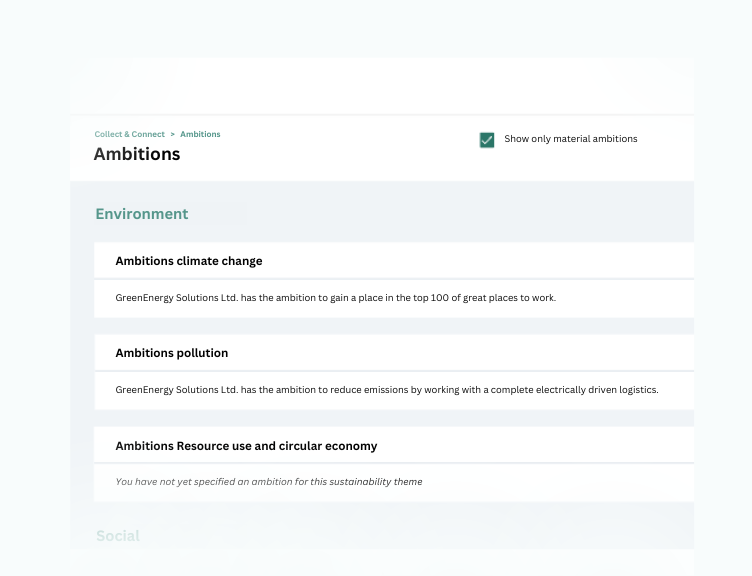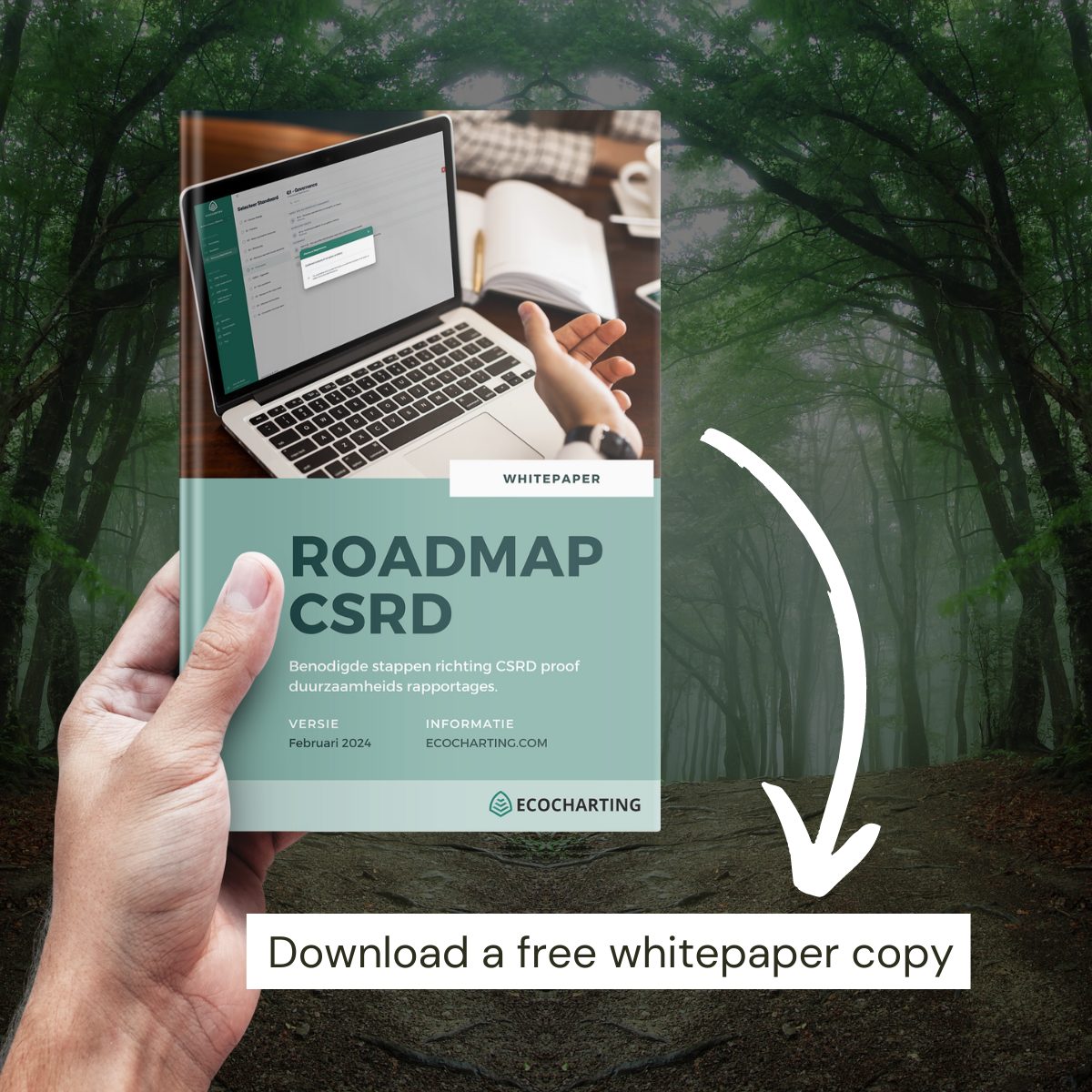CSRD reporting using Ecocharting - an overview
Preparing for CSRD reporting involves several steps, all of which are facilitated through Ecocharting. Once all data, including metrics and narratives, have been collected via the platform, users can effortlessly generate and export a CSRD-compliant and digitally tagged sustainability report.

Trusted by LEADING EUROPEAN companies










CSRD reporting
Reporting in and of itself shouldn’t be the main goal of your sustainability management program. However, it’s an essential aspect of CSRD compliance. That’s why it’s noteworthy that Ecocharting software offers a crucial feature: the ability to generate and export a CSRD-compliant and digitally tagged sustainability report.
CSRD reporting involves detailing the relevant (i.e., material) ESG topics in a structured manner. Beginning with a broad overview of your organization, its management, and the reporting preparation processes, it subsequently delves into each of the themes identified through your double materiality assessment. For each topic, the document covers key aspects including policies, actions, metrics, and targets.
Ecocharting streamlines the process by consolidating all data collected through our platform into a coherent, digitally tagged document suitable for CSRD reporting purposes. This facilitates the creation of a readable and compliant report ready for publication.

Get a demo account
Get a demo account to gain direct access to the Ecocharting CSRD platform. Explore its comprehensive functionalities:
- Stakeholder engagement
- Double materiality assessment
- GAP analysis
- Reporting & publishing
In practice
How to prepare for CSRD Reporting

A common error in commencing the CSRD reporting process is to immediately identify which of the 1100+ data points are available and devise a plan to acquire each one individually. Instead, a more beneficial initial step is to conduct a comprehensive double materiality assessment.
Once all impacts, risks, and opportunities have been meticulously identified through the double materiality assessment, this greatly accelerates the CSRD reporting process, as many of the data points can be automatically generated.
ESG topics
Possible datapoints
Types of impacts & scores

CSRD & Ecocharting
Join our next webinar to learn about CSRD and how Ecocharting can help you in your journey towards sustainability.
- Roadmap CSRD & the fit with Ecocharting
- Ecocharting software: setup, costs, timeline
- Double materiality & GAP analysis in practice
- F.A.Q. and Q&A
Ecocharting Software
Outline of the CSRD reporting structure
Given Ecocharting’s complete focus on CSRD, every step taken and all information collected are done with the final report in mind.
General information
Description of the organisation, its strategy & business model and how stakeholders have been engaged with to identify material topics.
Policies, actions and targets
Description of the main elements of relevant policies, actions and targets on each of the material ESG topics.
Metrics
Quantitative data concerning ESG topics serve to monitor progress and ensure transparency, comparability, and the credibility of your sustainability endeavors.

Roadmap CSRD
Our most up-to-date whitepaper. Discover a complete overview of the regulations and the steps to be taken:
- How to engage with whom and when?
- Which datapoints belong in the report?
- How to determine materiality?
- What is the role of digitisation and automation?
Start CSRD preparations today using Ecocharting.
Get access to our comprehensive CSRD platform by creating your personal demo account today.



